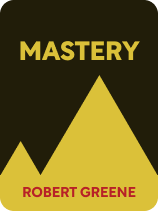

This article is an excerpt from the Shortform book guide to "Mastery" by Robert Greene. Shortform has the world's best summaries and analyses of books you should be reading.
Like this article? Sign up for a free trial here.
Are you trying to master a skill? Do you have an instructor? What role should an instructor play in your pursuit of mastery?
In Mastery, writer and educator George Leonard describes in detail how you can walk the path of the master—the life lived in disciplined dedication to your chosen skill, craft, or art. He says that you shouldn’t walk this path alone; you should take along an instructor.
Continue reading to understand the importance of instruction as you pursue mastery.
The Importance of Instruction
Leonard says that, while it’s possible to learn skills on your own, the best learning happens under the guidance of a skilled instructor. This is because teachers can tailor their instruction to your specific needs as a learner. Your teacher can give you precise, specific feedback, demonstrate the forms and techniques of your skill, offer encouragement, and mentor you through your unique challenges. In contrast, you’ll spend a lot of time trudging through territory that’s already been mapped if you try to learn on your own.
(Shortform note: In Mastery, Robert Greene agrees with Leonard about the importance of instruction, asserting that one-on-one guidance is the best way to get a quality education in your field. He names three benefits: You’ll inherit the knowledge, experience, and spirit of your teacher and his teachers; you’ll receive direct guidance, tailored to your specific needs (as Leonard suggests); and you can also forge an emotional bond that enriches the learning experience. That is, when a teacher or mentor becomes invested in you as her student, you’ll find that she more passionately transmits to you her knowledge and skills.)
To find a great teacher, pay attention to the following factors:
- Lineage: While this is an old-school consideration, Leonard argues that your teacher’s lineage matters. If you can trace a line of teachers back to a reputable and well-established school in their field, you’ll know they’re well-grounded in the skill.
- Teaching style: Look for an instructor that balances positive and negative feedback in a roughly 50/50 ratio. That is, they’ll offer both words of encouragement and constructive critique, but not too much of either.
- Patience: The best teachers, Leonard says, are those who embrace the challenge of working with the least talented pupils. If a teacher is patient, compassionate, and sincere with slower learners, you know they have the heart of a master teacher.
| Mentors Versus Teachers In his book Mastery, Robert Greene also offers advice on finding a guide—however, he suggests that you search for a mentor, rather than a teacher. The difference is that a mentor is more of a personal, one-on-one guide, while a teacher might have many students at once. A one-on-one mentor can afford to be patient and go at your pace because they won’t feel pressure for you to keep up with other students. Additionally, your mentor may be a professional active in her field, whereas a teacher is often just that—a teacher. Greene suggests that you find potential mentors by appealing to people’s self-interest—showing that you’re willing to help them out by handling their administrative burdens or enhancing their work lives in some other way. He suggests you find someone who will hold you accountable and give you both constructive feedback and words of encouragement (as Leonard advises). Greene also implies that the best mentors are found in positions of power or authority within their fields. This idea broadens Leonard’s concept of lineage because even if your chosen skill isn’t one with clear lineages (like those that exist in martial arts and many spiritual traditions), you might still look for secular “lineages,” such as schools with long histories of training competent, masterful professionals—for example, you could find fantastic mentors in positions of authority at well-established universities, such as Oxford or Stanford. |
Finally, Leonard recommends that you be ready to break it off if, even after you’ve chosen a good teacher, the student-teacher relationship doesn’t work out. Teachers, like anyone, are only human. If you feel uncomfortable or like you just aren’t learning effectively, know that it’s alright to say goodbye and look for someone else to guide you.
(Shortform note: Continuing the parallels between Greene and Leonard’s recommendations, Greene also suggests that you avoid getting sucked too far into a mentor’s orbit. He explains that in time, you’ll have to step out of your mentor’s shadow—especially if they’re big in the field. The risk here is that they may resent your departure, which is a hurdle you’ll have to overcome. If, however, you’re pursuing a skill that doesn’t hinge on professional success (such as martial arts or yoga), you may not encounter these challenges. Your teacher simply won’t mind that you’re moving on, as his role is not put in jeopardy by your growth and success.)

———End of Preview———
Like what you just read? Read the rest of the world's best book summary and analysis of Robert Greene's "Mastery" at Shortform.
Here's what you'll find in our full Mastery summary:
- How to walk the path of the master by being disciplined in your skill or art
- Why mastery isn't an end goal, but rather a continual process of learning
- Why the master's path is the only guaranteed way to live a fulfilling life





